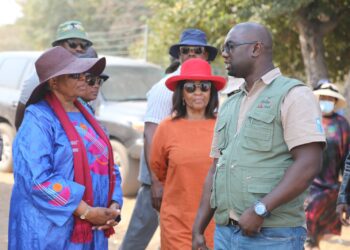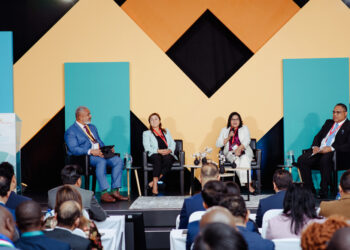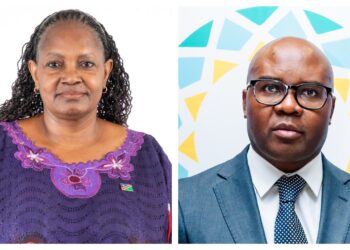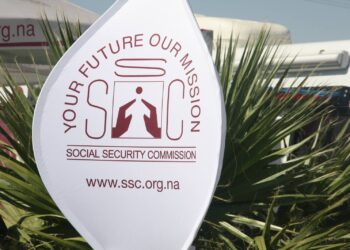
In Namibia, where there are over 2.1 million people under 35, youth empowerment through financial literacy is critical to the country’s development.
As global economies evolve and new challenges arise, young people’s ability to manage their finances, make informed decisions and participate confidently in the economy is important not only for individual well-being, but also for the resilience and prosperity of communities and the nation at large.
Young people represent the future. Empowering them through financial education has a positive impact on society. Young people who are financially literate are less likely to fall into debt traps.
They form enduring saving habits and gain the confidence necessary to interact with financial institutions and launch their businesses. As a result, the national economy becomes stronger and more resilient.
“Empowering youth with financial literacy is not just a goal; it’s an investment in Namibia’s future,” said FNB communications manager Kirsty Watermeyer. “As financial literacy improves, so does the collective confidence and capability of Namibian society. Fewer defaults, increased savings, and a stronger culture of economic participation indicate a brighter future ahead.”
Financial literacy is more than just budgeting and saving; it also involves boosting confidence and involvement in the economy by the previously marginalised communities. This shows how crucial financial literacy can be in empowering people to participate in the economy and exercise agency.
Despite improvements, Namibia’s financial literacy rate remains around 51%, indicating a significant gap. Young people who lack a strong foundation in financial literacy may find it difficult to manage their money, become victims of fraud, or miss out on investment opportunities. Young people are better equipped to control their destinies when they have understood the fundamentals of earning, saving, investing, and safeguarding their money.
Data from neighbouring South Africa shows there is a correlation between financial literacy and fewer loan defaults and higher levels of savings. Countries with a strong savings culture and high financial literacy rates tend to report better emotional and financial well-being.
Banks are in a unique position because they see the results of financial decisions made by both individuals and the government. As a trusted partner in financial literacy, FNB Namibia acknowledges its responsibility to promote inclusion and education.
FNB Namibia’s commitment to increasing financial literacy among young Namibians reflects a broader goal of empowering the next generation. The bank wants to give young people the tools and resources they need to manage their finances, create budgets, and make investments.
FNB fiduciary facilitators, who are trained to conduct consumer education sessions tailored to the specific needs of their audiences, are one of the key initiatives of the bank towards an empowered society. These workshops, which aim to improve employee well-being and financial literacy can be hosted by businesses or by the community.
The consumer education programme consists of five key modules designed to improve financial literacy. The first module focuses on budgeting, income and expenses, needs vs. wants, and the basics of interest. The second module covers how to grow money through saving, investing, and protection from scams.
In the third module, participants learn about managing debt, while the fourth module emphasises protecting assets through short- and long-term insurance. The fifth module teaches about leaving a legacy, including retirement planning and the importance of wills. Together, these modules provide participants a comprehensive financial education that empowers them.
FNB also hosts sessions at tertiary institutions to help students prepare for the financial realities of adulthood. The bank’s online resources further provide valuable financial tips and advice, making this information accessible to everyone.
Graduates and interns who took part in financial literacy workshops have reported feeling more confident and developing better money management practices. As the Head of Business: FNB Fiduciary Namibia Anielle von Finckenstein noted, “Enabling young people to make informed financial decisions is a gift that keeps giving – to themselves, their families and the nation.”











